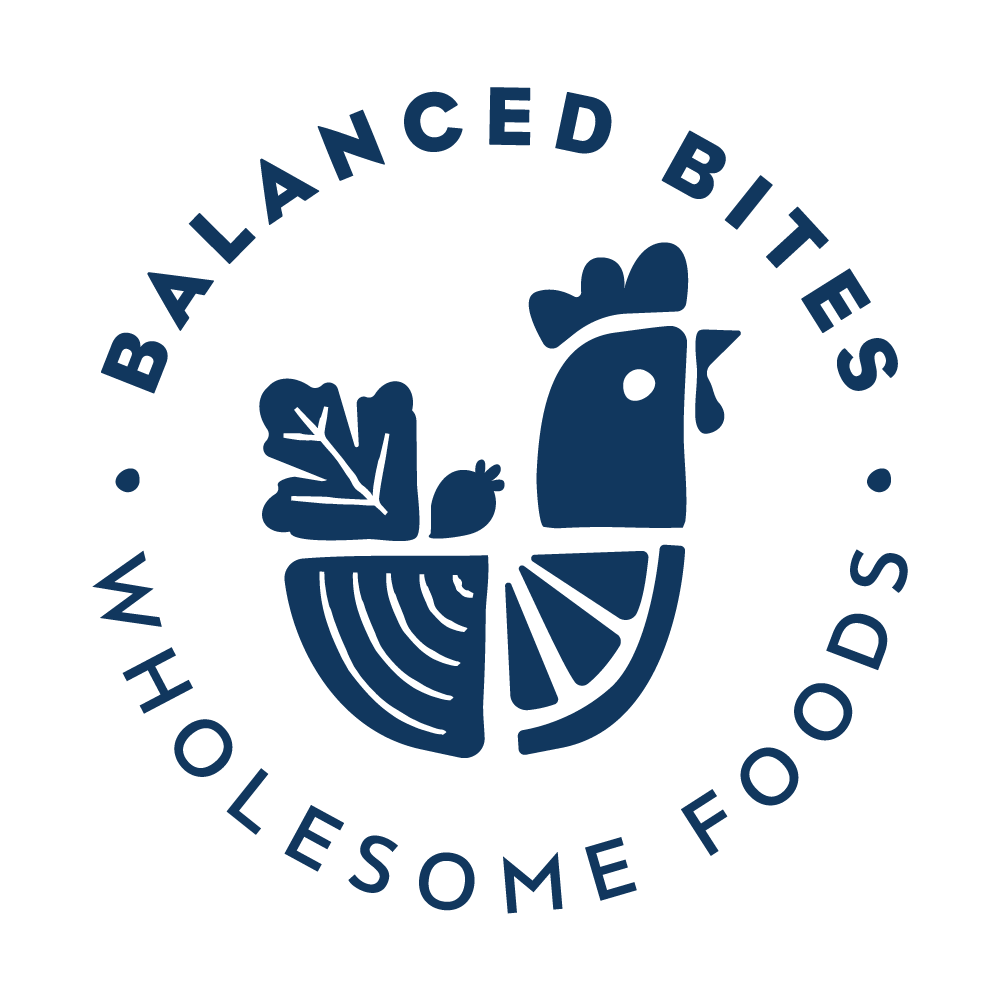Meal Ingredient FAQs
At Balanced Bites, we have very high standards for what goes into our meals. Here, we outline any approved additives we will allow in our foods and why, explain any less-common ingredients, and disclose any ingredients you will *never* find in our meals.
Still have questions? Email hello@balancedbites.com.
Approved Additives
MAY BE FOUND IN: Canned tomatoes, tomato sauce.
Citric acid is a commonly used food additive that is used in small amounts to boost acidity, enhance flavor, and preserve ingredients in packaged or canned foods.
MAY BE FOUND IN: Coconut milk.
Guar gum is a perfect example of an additive that's well tolerated by many people but causes problems for others. Guar gum is derived from a legume (the guar bean) and is commonly added to coconut milk products as an emulsifier, blending the high fat content of the coconut milk with the watery part to create a consistent, creamy texture. Many Paleo recipes call for full-fat coconut milk, and most brands that are widely available do contain guar gum. For the vast majority of people, this additive is completely safe and doesn't cause problems. However, some people do have a reaction to it.
What's this ingredient?
Arrowroot flour is a flour made from the tubers of the arrowroot plant, and is often used to thicken sauces and soups.
Cocoa powder adds a little sweetness without adding any actual sweetener. It's made from fermented, dried, and roasted cacao beans.
Coconut aminos are a soy-free and gluten-free replacement for traditional soy sauce. Coconut aminos are made from coconut sap or nectar, but are completely approved for the 21-Day Sugar Detox because they're fermented.
Coconut milk is a non-dairy milk that can be made from scratch or purchased in cans. It's a great milk alternative if you're following a dairy-free way of eating, or are lactose or casein intolerant.
Coconut oil is a naturally occurring saturated fat that can be used in sweet or savory dishes. It's extremely heat-stable and is ideal for cooking at higher temperatures.
Dates are a small fruit that are often used as a natural sweetener instead of sugar.
Garam masala is a spice blend that's made up of cumin, coriander, green and black cardamom, cinnamon, nutmeg, cloves, bay leaves, peppercorns, fennel, mace, and dried chiles. This spice blend contains nightshades.
Ghee is pure butterfat that is made by cooking the dairy solids out of whole butter. It is more heat-stable than butter and many consider it to be dairy-free as it is purely oil with all proteins removed. If you have a severe dairy allergy, we recommend choosing meals without ghee, but many find they can tolerate ghee better than butter or other dairy foods.
This is a slightly cheesy-flavored deactivated yeast (not the same as the yeast used in baking recipes to leaven anything) to use in place of a grated cheese topping or in recipes when avoiding dairy. Nutritional yeast contains B-complex vitamins and can be found either in bulk or with other dairy-free items at the grocery store.
Plantains are members of the banana family, but they are starchier and lower in sugar, and therefore not usually eaten raw. They're a great starchy carb to include in your diet!
Porcini powder is made from dried porcini mushrooms, and is used to help bring more umami (savory) flavor to dishes.
Red Boat Fish Sauce is made from anchovies and sea salt, and is used in many dishes to bring more umami (savory) flavor to dishes, especially those with an Asian flavor profile.
Red wine vinegar is oxidized wine, and is used in small amounts to bring more acidic flavor to dishes.
Rice vinegar is made from fermented rice. Its mild and slightly sweet flavor is used in many Asian dishes.
Sesame oil is an oil created from sesame seeds, and is used in many Asian dishes for its distinctive nutty flavor.
Never List
WHY NOT? Seed oils are higher in polyunsaturated fatty acids (PUFAs) than other options, which are highly prone to oxidation. Oxidized oils are damaged oils, and damaged oils are inflammatory.
Further, the process by which canola and other seed oils are made involves an expeller or screw press, high heat, and a wash with a chemical solvent (hexane). This produces a gray, foul-smelling oil that isn't smooth. It then has to be chemically bleached, deodorized, and died yellow before it becomes the oil you see in the bottle. We will never include them in any of our meals.
WHAT WE USE INSTEAD: Coconut oil, ghee, animal fats, and olive oil.
WHY NOT? Gluten and anti-nutrients in grains can disrupt normal, healthy digestive function for many people, and the products that contain them are typically highly processed.
WHY NOT? Soy may disrupt natural endocrine function and is often found in highly processed foods.
